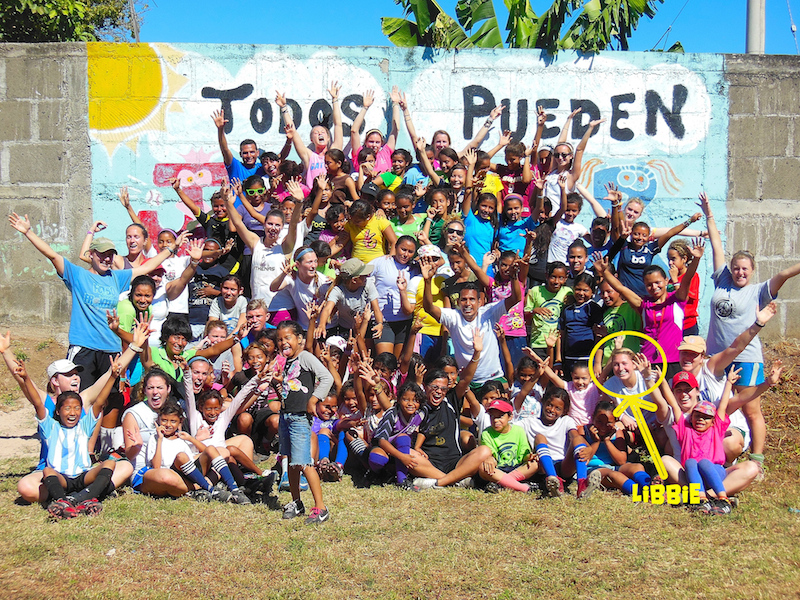Nothing has ever stopped Libbie Randolph ’14 from playing soccer. With a father and grandfather who played in college, the game is in her blood. For instance, when there was no girl’s soccer team at her high school in Christchurch, Va., she and two other students started one.
“I knew that I loved soccer, so I convinced myself that there was no way there would not be a team,” said Randolph, who helped to hire a teacher at the school, Matthew Schaefer, as the coach, and she convinced nearly all of the school’s female population, at the time about 30 students, to join the team.
Randolph, who graduated in May with a Spanish and communication double major, continued the family tradition by playing defense all four years for the Denison squad.
During her senior year, in an effort to explore the world of nonprofit athletics programs and spice up a long winter break, Randolph flew down to Granada—a small city located an hour south of Managua, Nicaragua’s capital—to volunteer with Soccer Without Borders for a week.
There, she and 15 other weeklong volunteers, along with some permanent staffers, taught close to 60 local girls between the ages of 4 and 17 how to play soccer. The ultimate goal was to encourage teamwork and confidence.
Randolph was assigned to work with the oldest age group, 13- to 16-year-olds. In the mornings she and the other volunteers and staff would meet the players at a practice field where they would run drills for a couple of hours.
“These little girls love you before they even know you,” said Randolph. “The minute you get there, you have one hanging off of your leg, one hanging off of your arm, and another wrapped around your middle. They don’t care if you can’t speak their language, and they just love the fact that you’re there and want to be with them. It’s hard not to return the feeling.”
After practice, everyone went back to SWB’s offices, located a couple blocks away, to work on different team-building activities. “We did things that made everyone work together to solve problems,” said Randolph. “Like, one person would be blindfolded and another person would have to communicate something she would have to draw.”
Randolph and other volunteers spent their evenings getting to know their host families or participating in some of SWB’s planned events like salsa dancing, hiking, or chocolate-making.
SWB has four core programs, four seasonal programs, and 12 camps in four countries, but what attracted Randolph to the Nicaraguan program was its focus on young female athletes.
“Programs that work with only young girls are really rare in cultures like Nicaragua that are so patriarchal. I love that it gives them an opportunity to come and find themselves and find empowerment through soccer. There should be more opportunities like this,” she said.
As a female athlete who ran into challenges during her own soccer career, Randolph was able to connect to the program participants. “Growing up as a girl going through sports you hear a lot of things like ‘you play like a girl.’ I think finding a sport or anything you’re passionate about enables you to find self-confidence. It gave me initiative and something to work toward,” said Randolph.
To her, soccer can accomplish this universally because “all you need is a ball,” she said. “I’ve even seen people play with a bag full of socks.”
Randolph considers it time well spent and wants others to have similar experiences. She’s even been working at convincing her former Big Red women’s soccer teammates to make a similar trip.
“I guess I learned a little about the simple joys in life,” said Randolph. “These girls are so happy despite their situation. They come, put a smile on, and find pure joy in playing soccer. It’s really amazing. I wish we could all be more like them.”
Now Randolph hopes to find ways to incorporate soccer beyond an academic setting. She’s headed for the McIntire School of Commerce at the University of Virginia for its master’s program this fall and hopes eventually to combine her passion for social change, with her marketing knowledge, and, she hopes, her favorite sport.
